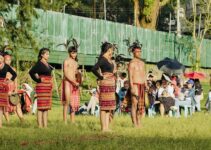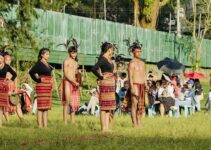In your journey to understanding Indigenous healthcare rights in Canada, navigating the landscape can feel like finding the way through a dense forest. With these 6 key tips, you can illuminate the path and empower yourself as an advocate for Indigenous healthcare rights. From the historical context to current challenges, legal frameworks, cultural competency, advocacy, and resources, this guide will equip you with essential knowledge to support Indigenous healthcare rights in Canada. Let's delve into these key tips and take meaningful steps towards ensuring equitable and respectful healthcare for Indigenous communities.
Key Takeaways
- Indigenous healthcare rights in Canada have been impacted by colonialism, resulting in the loss of autonomy and self-governance in healthcare matters for Indigenous communities.
- Access to quality healthcare is a challenge for Indigenous communities due to remote locations, lack of cultural understanding from healthcare providers, funding inequities, and historical mistreatment affecting trust in the healthcare system.
- There is a need for increased cultural competency training for healthcare providers, including standardized curriculum, resources for ongoing training, and the incorporation of traditional Indigenous healing practices.
- Systemic discrimination within the healthcare system contributes to healthcare disparities for Indigenous communities, including limited access to essential services and resources, historical trauma, and inadequate representation in policy and decision-making processes.
Historical Context of Indigenous Healthcare Rights
When did the historical context of Indigenous healthcare rights in Canada begin to significantly impact the current state of healthcare for Indigenous communities? The historical context of Indigenous healthcare rights in Canada has been profoundly shaped by the colonial impact and the recognition of treaty rights. The arrival of European settlers and the imposition of colonial systems drastically altered the traditional healthcare practices and rights of Indigenous peoples. This led to the marginalization and erosion of Indigenous healing traditions, as well as limited access to culturally appropriate healthcare.
The colonial impact disrupted the established healthcare systems within Indigenous communities, leading to a loss of autonomy and self-governance in healthcare matters. Furthermore, the recognition of treaty rights, which promised healthcare provisions to Indigenous peoples, has been inadequately fulfilled. This historical backdrop has created a legacy of mistrust and disparity in healthcare access and delivery for Indigenous communities, significantly influencing the current state of Indigenous healthcare rights in Canada.
This historical context sets the stage for understanding the current challenges in Indigenous healthcare, including systemic barriers and the ongoing struggle for culturally sensitive and equitable healthcare services.
Current Challenges in Indigenous Healthcare
You face significant challenges in accessing healthcare, as Indigenous communities often lack the same level of resources and infrastructure as non-Indigenous populations. Additionally, healthcare providers may not have the necessary cultural competency training to effectively address the unique needs of Indigenous patients. Furthermore, systemic discrimination within the healthcare system continues to create barriers to quality care for Indigenous peoples.
Access to Healthcare
To understand the current challenges in Indigenous healthcare access in Canada, it is essential to examine the systemic barriers faced by Indigenous communities. Despite efforts to address healthcare disparities, Indigenous peoples still encounter significant obstacles in accessing quality healthcare. These challenges include:
- Geographic Barriers: Many Indigenous communities are located in remote areas, making it difficult to access healthcare facilities.
- Cultural Competency: Healthcare providers may lack cultural understanding, leading to inadequate care for Indigenous patients.
- Funding Inequities: Indigenous healthcare often receives less funding than non-Indigenous healthcare services, impacting the quality and availability of care.
- Historical Trauma: Past injustices and mistreatment continue to affect Indigenous individuals' trust in the healthcare system, leading to reluctance in seeking care.
Addressing these challenges is crucial to ensuring equitable healthcare access for Indigenous peoples in Canada.
Cultural Competency Training
Improving cultural competency among healthcare providers is essential for addressing the current challenges in Indigenous healthcare. Cultural sensitivity and understanding are crucial components of effective healthcare delivery to Indigenous communities. However, there are challenges in integrating cultural competency training into the healthcare system, hindering the provision of equitable care. Below is a table highlighting some of the current challenges in Indigenous healthcare training:
| Challenges in Indigenous Healthcare Training |
|---|
| Limited access to cultural competency courses |
| Lack of standardized cultural competency curriculum |
| Insufficient emphasis on Indigenous healthcare in medical education |
| Limited resources for ongoing cultural competency training |
| Resistance to incorporating traditional Indigenous healing practices |
Enhancing cultural competency in healthcare training is vital to overcoming these challenges and improving Indigenous healthcare outcomes.
Moving forward, it is crucial to address systemic discrimination within the healthcare system to ensure equitable access and quality care for Indigenous communities.
Addressing Systemic Discrimination
Addressing systemic discrimination in Indigenous healthcare presents significant challenges that require immediate attention and action. The current healthcare system perpetuates systemic discrimination, resulting in significant healthcare disparities for Indigenous communities. Here are four key challenges that need to be addressed urgently:
- Lack of culturally safe healthcare practices
- Limited access to essential healthcare services and resources
- Historical trauma and distrust of the healthcare system
- Inadequate representation of Indigenous healthcare needs in policy and decision-making processes
Systemic discrimination in Indigenous healthcare continues to contribute to the existing healthcare disparities. It is crucial to recognize and address these challenges to ensure that Indigenous communities receive equitable and culturally appropriate healthcare services.
Legal Framework for Indigenous Healthcare Rights
First, understand the legal framework that governs Indigenous healthcare rights in Canada. The legal framework for Indigenous healthcare rights is rooted in the recognition of Indigenous sovereignty. This means that Indigenous peoples have the right to make decisions about their healthcare systems, services, and practices. The Canadian Constitution, particularly Section 35 of the Constitution Act, 1982, recognizes and affirms the existing Aboriginal and treaty rights of Indigenous peoples. Additionally, the United Nations Declaration on the Rights of Indigenous Peoples (UNDRIP) is an international human rights instrument that provides a framework for the rights of Indigenous peoples, including their right to access healthcare without discrimination.
Furthermore, Indigenous healthcare rights are also shaped by landmark legal cases, such as the Daniels v. Canada case, which affirmed that non-status Indians and Métis have rights as "Indians" under Section 91(24) of the Constitution Act, 1867. Understanding this legal framework is crucial for advocating for Indigenous healthcare rights and ensuring that Indigenous communities have the autonomy and resources to provide culturally safe and accessible healthcare services.
Cultural Competency in Healthcare Services
Continuing from the discussion of the legal framework for Indigenous healthcare rights, it is essential to recognize the significance of cultural competency in providing healthcare services to Indigenous communities. Cultural sensitivity is paramount in addressing healthcare disparities and ensuring that Indigenous individuals receive the care they need while feeling respected and understood. Here are four key considerations for enhancing cultural competency in healthcare services:
- Cultural Awareness Training: Healthcare providers should undergo training to understand the cultural nuances, traditions, and beliefs of Indigenous communities. This will enable them to provide care that is respectful and responsive to the cultural needs of Indigenous patients.
- Incorporating Traditional Practices: Recognizing and incorporating traditional healing practices within the healthcare system can help bridge the gap between Western medicine and Indigenous healing methods, promoting holistic care for Indigenous individuals.
- Community Involvement: Involving Indigenous community leaders and members in healthcare decision-making processes can ensure that services are tailored to the specific needs of the community, fostering trust and collaboration.
- Language Access: Providing language interpretation services and materials in Indigenous languages can break down communication barriers and help healthcare providers engage more effectively with Indigenous patients.
Advocacy and Activism for Indigenous Healthcare
To advocate for Indigenous healthcare, prioritize amplifying their voices and supporting their initiatives in accessing equitable and culturally competent services. Advocacy for Indigenous healthcare involves empowering Indigenous communities to assert their rights and demand fair treatment within the healthcare system. This includes engaging with local communities to understand their specific healthcare needs and challenges, and then amplifying their concerns to policymakers and healthcare providers. Empowerment through education and support can enable Indigenous peoples to navigate and advocate for their healthcare rights effectively.
Community engagement is a vital aspect of advocacy and activism for Indigenous healthcare. It involves collaborating with Indigenous communities to develop and implement healthcare initiatives that are tailored to their cultural and social contexts. This can include supporting community-led healthcare programs, promoting traditional healing practices, and ensuring that healthcare services are accessible and respectful of Indigenous customs and beliefs.
Advocacy also plays a crucial role in driving policy change to address systemic barriers to Indigenous healthcare. This may involve lobbying for legislative reforms, challenging discriminatory practices, and advocating for increased funding for Indigenous healthcare services. By actively engaging in advocacy and activism, individuals and organizations can contribute to the advancement of Indigenous healthcare rights and the creation of a more equitable and inclusive healthcare system.
Resources for Supporting Indigenous Healthcare Rights
You can access healthcare information that is tailored to Indigenous communities, ensuring that you have the knowledge needed to make informed healthcare decisions. Culturally sensitive healthcare services are essential for providing respectful and effective care that meets the unique needs of Indigenous individuals. These resources empower you to advocate for your healthcare rights and seek the support you deserve.
Accessible Healthcare Information
For indigenous communities in Canada, accessing reliable healthcare information is crucial for understanding and advocating for their healthcare rights. To ensure accessible healthcare information and resources, consider the following key tips:
- Culturally relevant materials: Seek out healthcare information that is tailored to indigenous communities, addressing specific health concerns and cultural practices.
- Community healthcare workers: Engage with local healthcare workers who understand indigenous healthcare disparities and can provide relevant information and support.
- Healthcare education outreach: Take advantage of healthcare education programs and workshops tailored to indigenous communities to increase awareness and knowledge about healthcare rights.
- Online resources: Explore reputable online platforms that provide healthcare information specifically designed for indigenous people, offering support and guidance on navigating the healthcare system.
Culturally Sensitive Healthcare Services
Accessing culturally sensitive healthcare services is essential for supporting the healthcare rights of indigenous communities in Canada. Cultural awareness plays a crucial role in addressing healthcare disparities faced by indigenous peoples. Healthcare providers need to be knowledgeable about the cultural beliefs, practices, and traditions of indigenous communities to offer respectful and effective care. It's important to create a healthcare environment that is welcoming and inclusive of indigenous cultural values and customs. This can be achieved through ongoing cultural competency training for healthcare professionals and staff. Additionally, offering traditional healing practices and involving indigenous community members in healthcare decision-making can help bridge the gap in healthcare disparities. By prioritizing culturally sensitive healthcare services, we can work towards ensuring that indigenous communities receive the respectful and equitable care they deserve.
Frequently Asked Questions
What Are Some Specific Examples of Successful Advocacy and Activism Efforts for Indigenous Healthcare Rights in Canada?
Advocacy efforts for Indigenous healthcare rights in Canada have been successful through community engagement and intersectional healing. Grassroots movements and partnerships with healthcare providers have amplified Indigenous voices, leading to improved access and culturally sensitive services. By advocating for policy changes and promoting Indigenous-led initiatives, significant progress has been made. Strong community support and collaborative activism have been instrumental in addressing the disparities and advocating for the rights of Indigenous peoples in the healthcare system.
How Do Traditional Indigenous Healing Practices Intersect With Western Healthcare Services in Canada?
Traditional healing practices in Indigenous healthcare intersect with Western healthcare services in Canada through cultural integration and a holistic approach. By incorporating traditional healing methods, such as herbal remedies and spiritual ceremonies, within the framework of Western medical care, Indigenous communities can access a more comprehensive and culturally sensitive healthcare system. This integration honors the rich history and knowledge of Indigenous healing practices while also providing a more inclusive approach to healthcare for Indigenous peoples in Canada.
What Are Some Common Barriers That Prevent Indigenous Peoples From Accessing Healthcare Services in Canada?
When it comes to accessing healthcare services, many barriers hinder Indigenous peoples in Canada. These barriers include geographical isolation, cultural differences, and discrimination. But solutions exist. Improving access to healthcare facilities, enhancing cultural safety training for healthcare providers, and involving Indigenous communities in healthcare decision-making can help promote equity in healthcare. By addressing these barriers, we can work towards ensuring that Indigenous peoples have equal access to healthcare services in Canada.
What Role Do Indigenous Communities Play in Shaping Healthcare Policies and Practices in Canada?
Indigenous community involvement plays a crucial role in shaping healthcare policies and practices in Canada. By integrating traditional healing methods and addressing access barriers, indigenous communities contribute to creating more culturally sensitive and effective healthcare systems. Their input helps ensure that policies and practices respect and support indigenous perspectives and needs, ultimately leading to improved healthcare outcomes for indigenous peoples.
How Can Non-Indigenous Individuals and Organizations Best Support Indigenous Healthcare Rights in Canada?
To best support Indigenous healthcare rights in Canada, start by building meaningful allyship with Indigenous communities. Engage in genuine partnerships and advocate for their rights. Stand up for funding initiatives that prioritize Indigenous healthcare. Your support can make a real difference in addressing the systemic issues that Indigenous communities face in accessing healthcare. Your active involvement and advocacy can help create positive change for Indigenous healthcare rights in Canada.
Conclusion
So, there you have it, folks! Just remember, when it comes to Indigenous healthcare rights in Canada, it's smooth sailing all the way. Just picture a majestic unicorn gracefully leaping over rainbows, and that's exactly how easy it is to ensure Indigenous communities have access to quality healthcare. Keep up the great work, and keep those rainbows shining bright!



